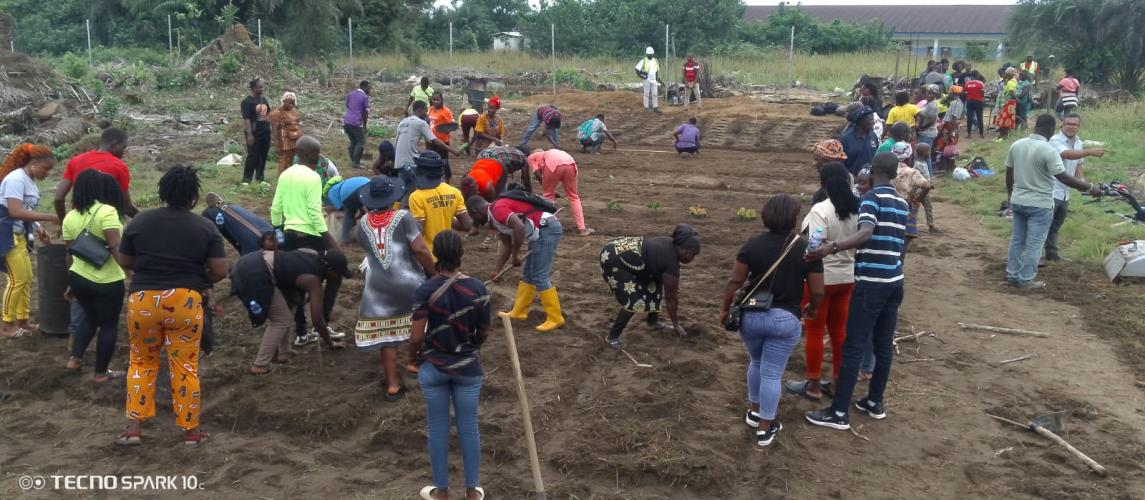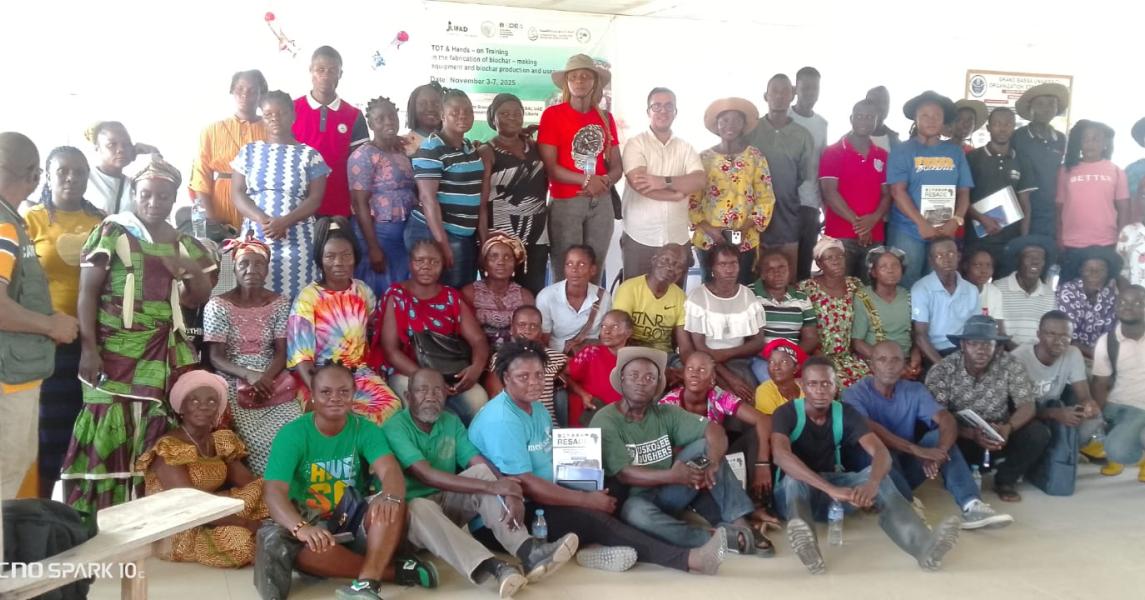
RESADE/CARI Project Empowers Farmers On Biochar, Organic Soil Amendments Innovation In Salinity-Prone Farming in Buchanan
BUCHANAN, Grand Bassa County – Organized by the RESADE/CARI Project, the team hosted a weeklong training workshop on biochar production and organic soil amendments at its Best Practice Hub (BPH), located near the Grand Bassa University. The goal is to equip 20 participants as Training-of-Trainers (ToTs) to transfer knowledge to more than 100 farmers across Bong and Grand Bassa Counties.
During the opening and orientation on day one, the training commenced with a welcome address by Dr. James S. Dolo, National Coordinator and Head of the Crop Program at CARI. He emphasized the importance of knowledge-sharing and encouraged participants to actively engage in discussions. Over 20 ToT participants were trained as knowledge multipliers, tasked with cascading the skills learned to their communities.
Dr. Dolo from CARI described the training as a major step toward sustainable agriculture in Liberia. “Biochar technology gives farmers the tools to improve their soil while protecting the environment,” he said. “It’s a win-win for productivity and sustainability.”
Participants from a diverse range of farmer-based organizations, including cooperatives from Grand Bassa and Bong Counties, and students from the College of Agriculture and Food Sciences at the Grand Bassa University, also joined, fostering cross-county collaboration and strengthening farmer and student networks.
Technical sessions and demonstrations of the training were facilitated by Dr. Zied Hammami, Research Agronomist and Soil Scientist at the International Center for Biosaline Agriculture (ICBA), UAE. He delivered detailed sessions on the factors influencing crop production, highlighting genetics, nutrition (water), environment, habitat/media, health, and hygiene, [lant growth requirements: soil (water), sunlight (solar radiation), air (CO₂), and nutrients, the role of temperature in germination, growth rate, and maturity, and the impacts of rainfall, sunlight, humidity, and wind on water availability, photosynthesis, disease prevalence, and pollination.
Dr. Hammami also explained how soil texture and structure affect root development and water retention, while soil fertility, availability of nitrogen, phosphorus, and potassium, and pH levels determine nutrient absorption.
He stressed that although Liberia has abundant air, water, and sunlight, the primary challenge lies in soil quality. Biochar, he noted, is a transformative solution: it retains water and nutrients, improves soil structure, and enhances crop resilience. “This workshop shows how research and education can work hand-in-hand to create real impact for smallholder farmers.”
During the practical application and sustainability, the Soil Scientist showcased that Biochar produced during the training was immediately applied to soil amendment trials and demonstration plots at the BPH. This hands-on approach allowed participants to witness the benefits of biochar in real time.
As part of this component, the training also showcased the recycling of green waste generated during BPH land clearing and preparation. This demonstration reinforced the project’s commitment to sustainability, environmental stewardship, and resource efficiency.
Agriculture remains the backbone of Liberia’s economy, employing 60% of the workforce. The Project identified that, yet, productivity is low, and the country imports nearly 70% of its staple food, rice. With 65% of the population under 25 years old, and nearly 70% under 35, youth engagement in agriculture is critical.
By promoting biochar technology and organic soil amendments, the training supports climate-smart practices, enhances food security, and creates pathways for green jobs and decent work that contribute to environmental sustainability.
The workshop was a resounding success, equipping participants with practical tools to improve soil health and crop productivity. The content developed during this assignment will support ongoing outreach and documentation, ensuring that the benefits of biochar and organic amendments are widely disseminated across farming communities in Bong and Grand Bassa Counties.
This initiative underscores the role of research, innovation, and farmer training in building a resilient agrifood system for Liberia’s future.

